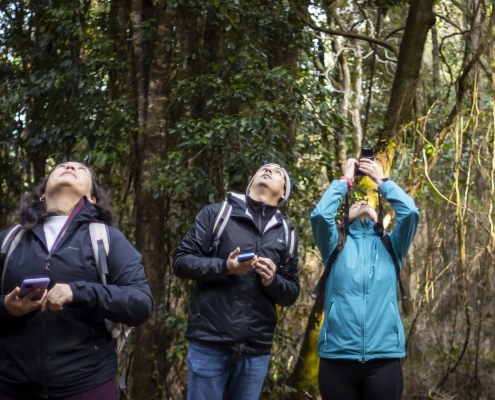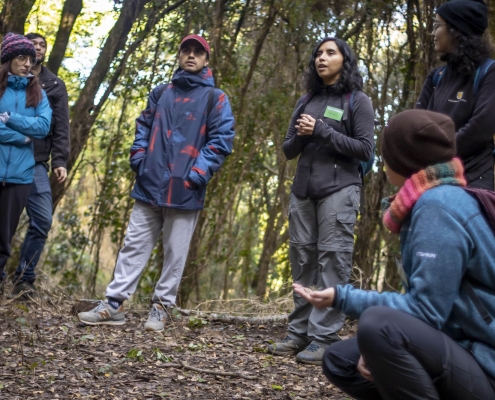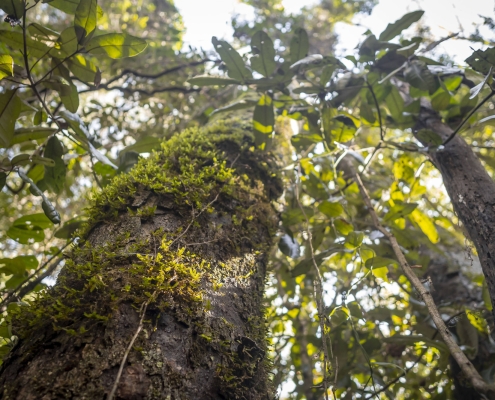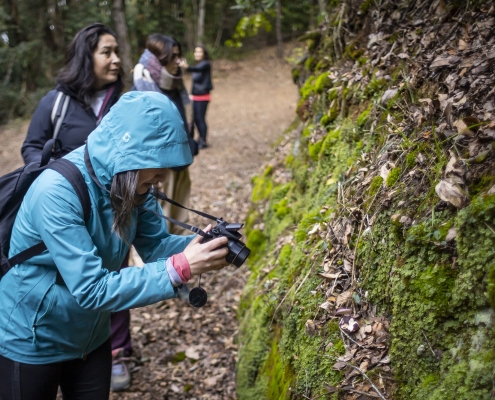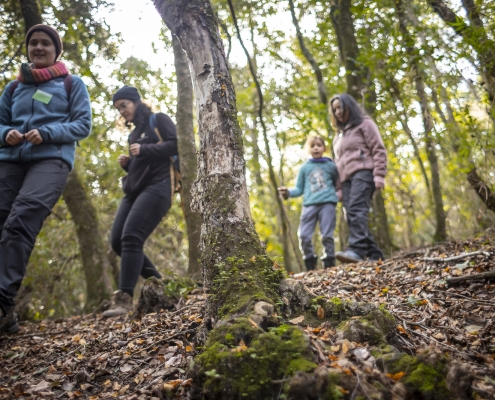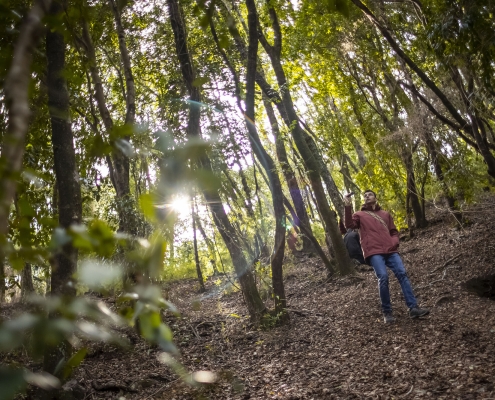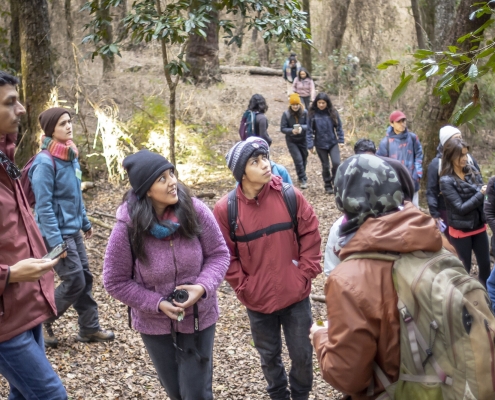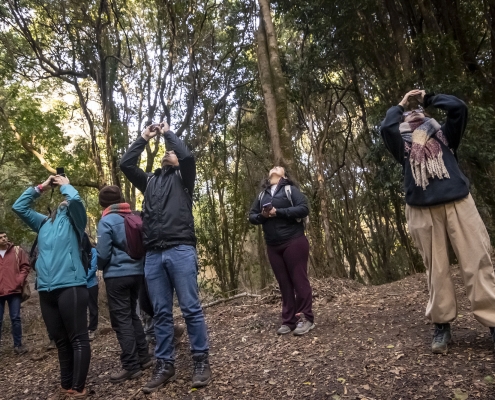"The Nature and Community Connection: Guided Tours Begin at Unprecedented Conservation Project in Chile"
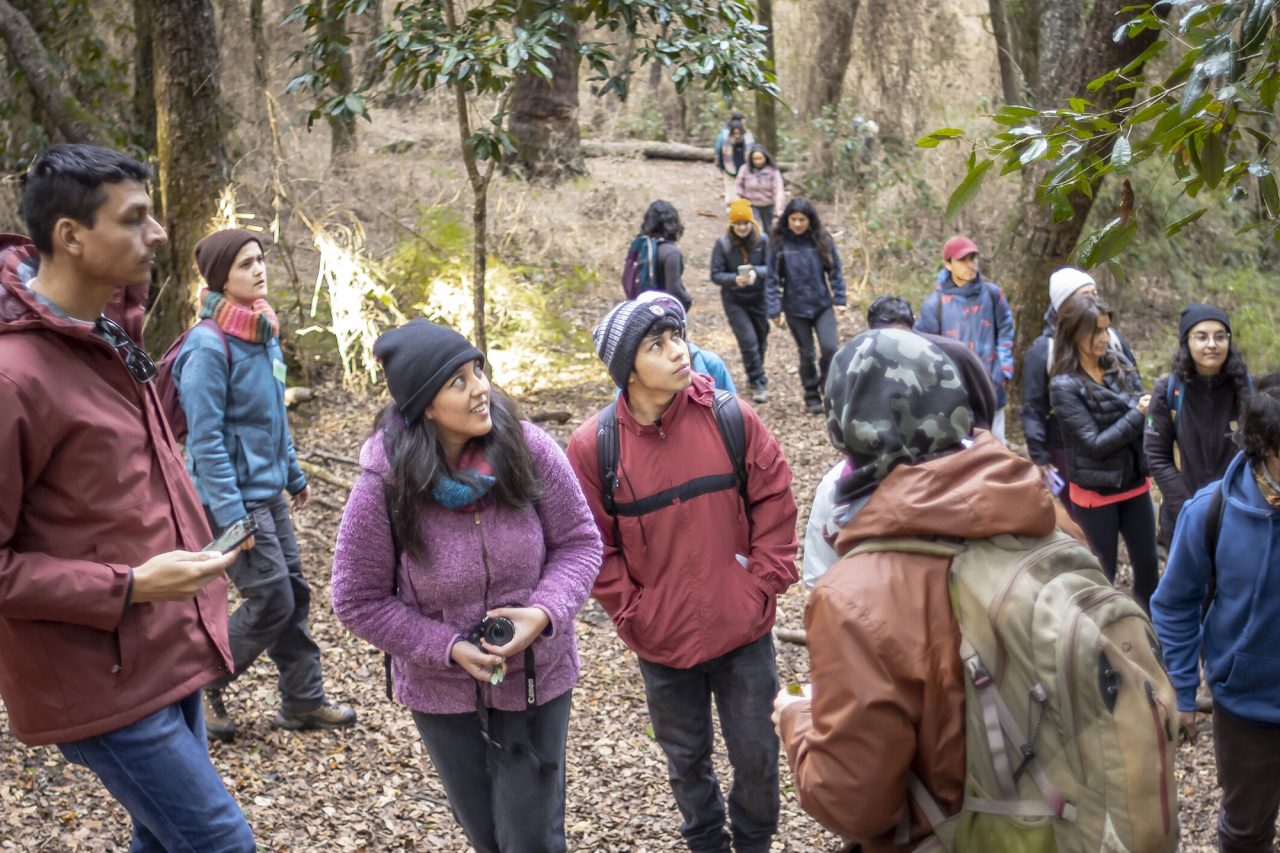
Carrying out one of its priority axes, the biodiversity conservation initiative, unique in the country, began its guided tour program. This will be the only official way to get to know part of the project's land, which seeks to promote the benefits that permanent contact with nature generates for humans.
The welcoming call of the chucao bird greets visitors arriving from various places, not too far away; in fact, just 15 minutes separate the city of Concepción from one of the last remnants of native coastal forest still surviving in this region of the country.
Neighbors, representatives from environmental organizations, and the community at large are here as part of the outreach efforts of the Campus Naturaleza Universidad de Concepción project; a visit to the heart of a groundbreaking initiative in Chile, aimed at conserving the biodiversity of an area inhabited by naranjillos, pitao, and Araucanian michai, which also serves as home to the pudú deer, rose-colored frog, guiña cat, and tiger crab, among others. These 7 species, both arboreal and animal, are endangered.
Like the forests that take their time to grow at the pace of living ecosystems, Campus Naturaleza is a project to be executed in different stages over the years. After its implementation, this area adjacent to the Universidad de Concepción main campus will be made accessible to the community with high standards of protection, environmental education, and a network of established trails, among other aspects, fulfilling the objective set by the Concepción university; to propose a new form of interaction between humans and nature, transformed into a biocultural legacy, not only for the Concepción community but also for the country and the planet.
Ximena Gauché Marchetti, Vice-Rector for Institutional Relations and Community Engagement at Universidad de Concepción, notes, "One of the defined lines in the Institutional Strategic Plan of the Universidad de Concepción is Sustainable Development, an aspect that transcends the environmental to embed itself in every facet of the institution's activities. This, together with our public, civic, and centenary nature, which has promoted community engagement since the university's founding, encompasses all the mission areas of the institution, with Campus Naturaleza representing a new space to manifest this work."
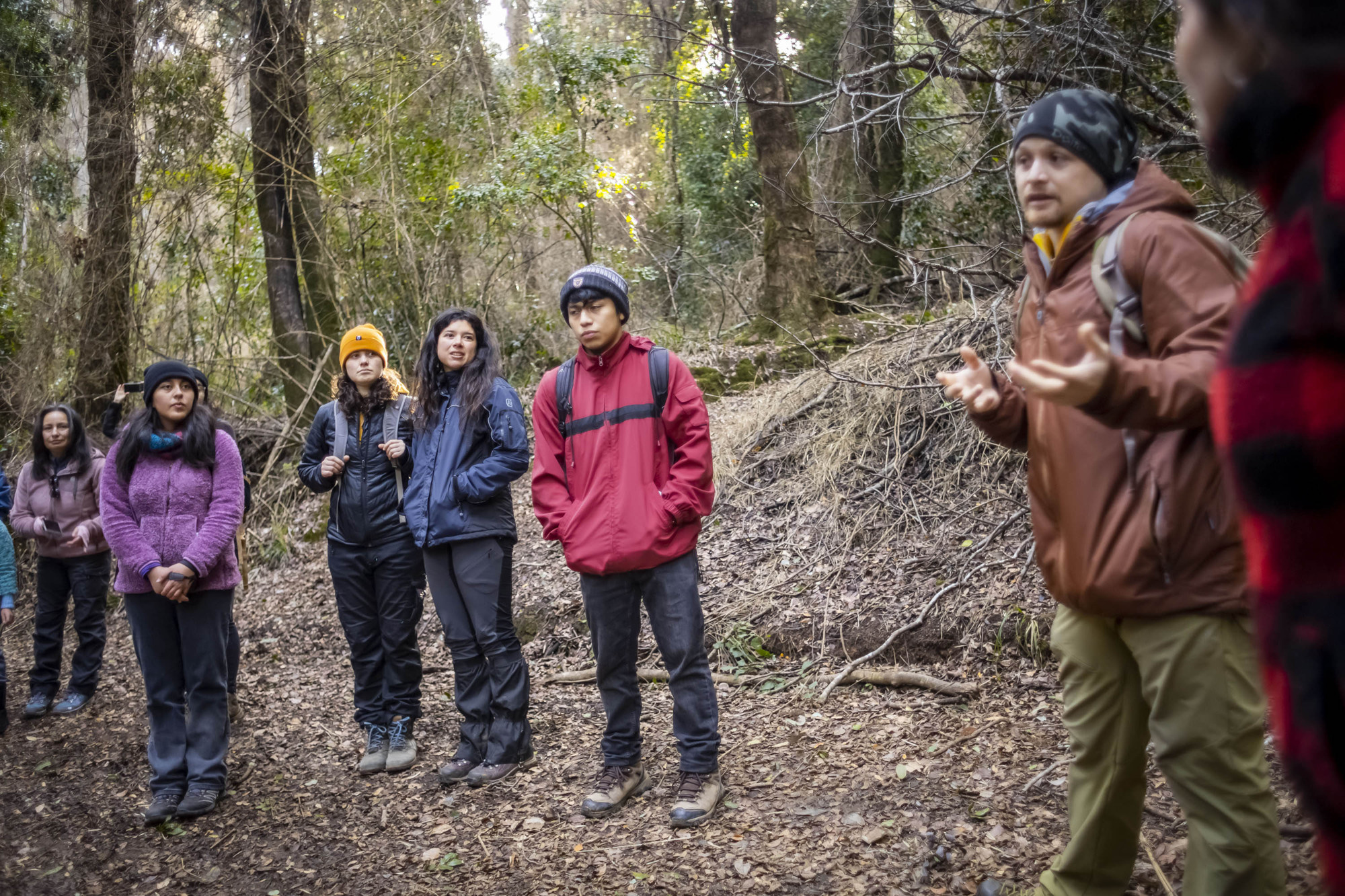
She further adds, "The legacy proposed by the project is to find a responsible way to address the care, maintenance, and recovery of the environment and its biodiversity, all grounded in the collaboration of various university bodies and the Concepción community, with a participative model of good governance, ensuring an effective and synergistic connection for mutual benefit between the university and the region, projected not only towards Concepción," she emphasizes.
Biodiversity Conservation
The tree species currently present on the project land correspond to the last vestiges of what was once the Concepción Deciduous Forest, a unique and irreplaceable ecosystem, a transition between the species that inhabit the central and southern areas of the country.
The initiative will not only conserve 25 hectares of these relict forests and 17 hectares of aquatic ecosystems but will also execute ecological restoration actions in areas covered by exotic species such as eucalyptus, pines, and acacias. eucaliptus, pinos y aromos.
Dr. Cristian Echeverría Leal, Director of the Campus Naturaleza project at Universidad de Concepción, states, "We are not only working to create a space for the conservation and restoration of local biodiversity but also to raise awareness among people about how much we depend on a healthy and restored nature. Currently, the stability of many of our socio-ecological systems is at stake. Our landscapes are moving away from resilience and from meeting current and future human needs."
"That's why having a unique window to contemplate our invaluable biodiversity through an initiative where science is the cornerstone and social connection the heart of the project is crucial," he emphasizes.
Among the project's key actions is the ex-situ conservation of biodiversity through the establishment of a botanical garden containing living collections of Chilean plants, following international standards. "We will begin by establishing the first living collection of the three endemic and endangered Nothofagus trees in South America, found only in Chile: ruil, hualo, and Santiago oak,"
Key Pillar
Similarly, Dr. Cristóbal Pizarro Pinochet, Project Co-Director, explains that the socio-environmental aspect is one of the priority axes. "It involves social connection and biocultural environmental education, where we aim to reconnect people with nature through educational, recreational, and healthy activities. All of this brings multiple benefits to people. Outreach activities are the human heart of Campus Naturaleza and must be conducted with ethical sense and respect, safeguarding fragile ecosystems that also need to be restored and cared for by the entire community. In this regard, we project that citizen science and art-science will support us in generating not only education but also awareness for their care."
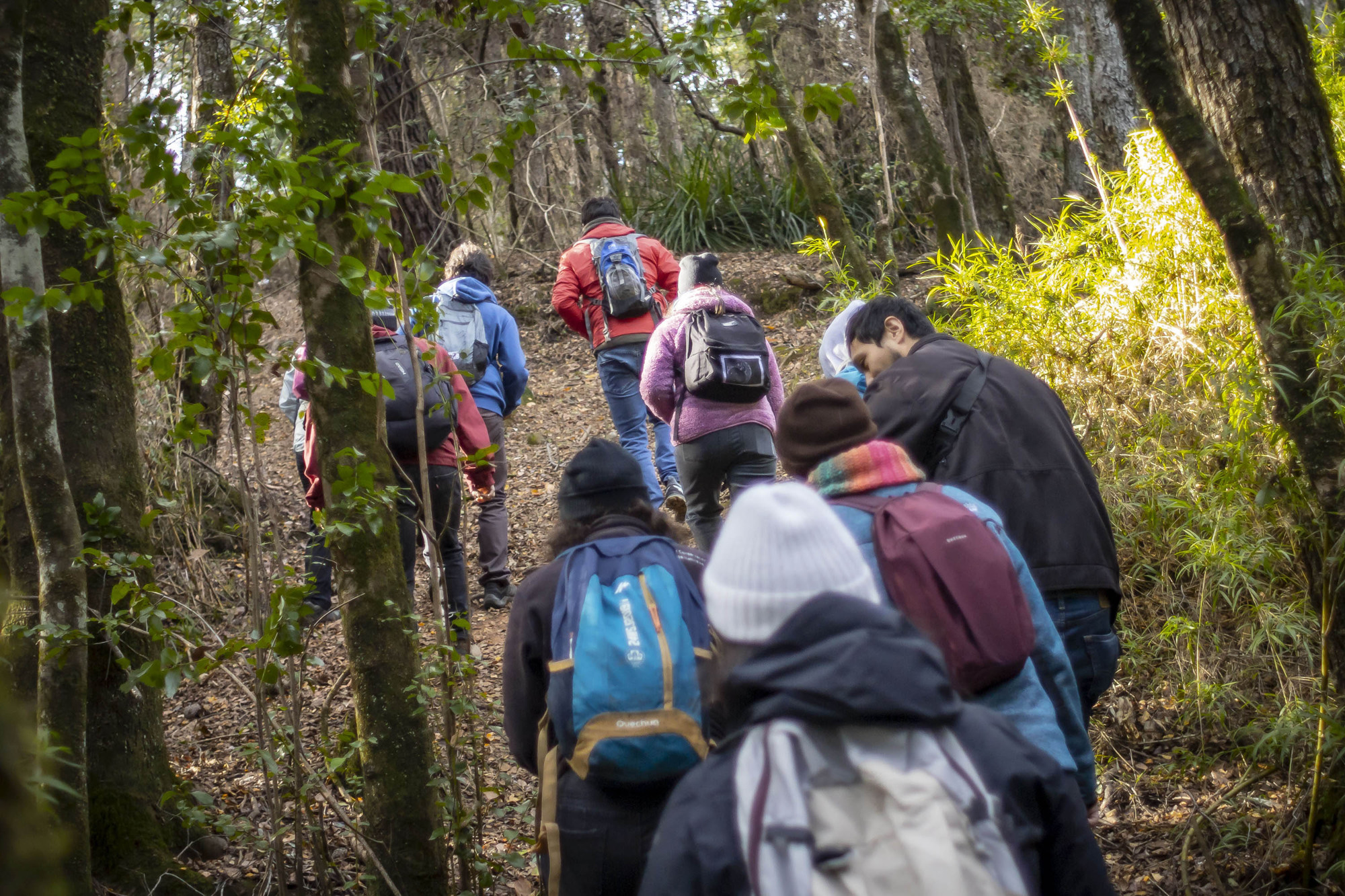
He also highlights that "the initial approaches with the community give us an encouraging sign that we can count on the support and synergy of neighbors, educational centers, community organizations, socio-environmental entities, and government bodies. We are establishing progressive and transparent participation mechanisms to integrate the knowledge of different community actors who value this space and nature," concludes the UdeC academic.
One of the concrete actions within these engagement mechanisms is guided tours. These activities will take place once a month, with approximately 20 spots available, aiming to take people to explore the relic coastal forest surviving on the grounds owned by UdeC.
While it is a private area, the forest and open-air environment have attracted cyclists, mountain runners, and individuals interested in fungi, birds, fauna, and biodiversity in general for years. Among this latter group is Francisca Pedreros, Environmental Engineer and member of the NGO La Escalera; after the activity, she commented that she learned about the project in May and finds it very necessary these days. "It's something that already exists, and it's very important that together we can manage this place properly, so it doesn't continue to erode and can be maintained over time, which is also the idea behind the project," she stresses.
All information about visits will be published on the social networks of the Campus Naturaleza Universidad de Concepción project @campusnaturalezaudec. It is important to consider that, due to the fragility of the ecosystems present in the place, visits with pets are not contemplated, since the presence of domestic animals can alter these habitats and the fauna that depend on them. Likewise, the areas will remain with restricted access, being, then, guided tours the only official way to get to know part of the project lands.

